Ten Faculty Named 2025 Bass Chairs
Award honors exceptional undergraduate teaching

Nicholas School of the Environment
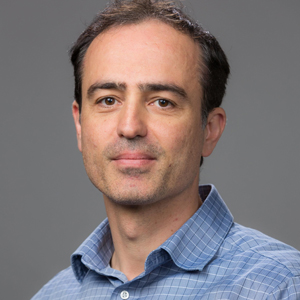
Nicolas Cassar, Lee Hill Snowdon Professor
Cassar is a professor of biogeochemistry, with research focusing on understanding how carbon, oxygen and nitrogen cycles influence our climate. A recognized leader in his field, Cassar was named a Kavli Fellow with the U.S. National Academy of Sciences and received the prestigious Presidential Early Career Award for Scientists and Engineers. As an excellent undergraduate instructor, Cassar seeks opportunities to improve course offerings and the overall undergraduate experience. His teaching contributions include the Future of the Oceans class, a core course for the marine science and conservation major, which is a new model of collaborative teaching across the Nicholas School divisions that enhance the undergraduate experience.
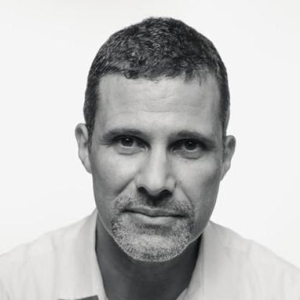
Brian G. McAdoo, Truman & Nellie Semans/Alex Brown & Sons Associate Professor
McAdoo is an associate professor of Earth and climate science studying the effects of disasters triggered by natural hazards. By studying events in the South Pacific, Caribbean and throughout Asia, he seeks to understand how human systems and geohazards interact to inform community resilience and reduce environmental suffering. McAdoo is a devoted undergraduate teacher and a sought-after mentor and advocate for students. His excellence in teaching and research, and his commitment to advising undergraduate students are truly outstanding. McAdoo excels at taking students to the field in his Exploring Earth Sciences: Field and Laboratory Investigations course, exposing them to Earth science in a fresh way.
Pratt School of Engineering

David Carlson, Yoh Family Associate Professor
Carlson is an associate professor of civil and environmental engineering with secondary appointments in biostatistics and bioinformatics, electrical and computer engineering, and computer science. Carlson focuses his research on the advancement of artificial intelligence methodology to guide treatments of psychiatric disorders such as depression and aggression. He is an outstanding teacher who was among the early pioneers in AI curriculum development at Duke, enabling scientists and engineers to accelerate discovery while engaging with ethical implications of such advances in data informatics and technology. His contributions include developing traditional courses but also many non-traditional learning experiences for students from around the world.

Junjie Yao, Jeffrey N. Vinik Associate Professor
Yao is an associate professor of biomedical engineering, with a secondary appointment in neurology and serves as the director of the biophotonics program at the Fitzpatrick Institute for Photonics. His pioneering work involves the integration of light and sound to enable high-speed functional brain imaging, deep-tissue molecular imaging, early-stage cancer detection, and through-tissue ultrasound printing. As an educator, he introduced innovative pedagogical approaches that emphasize conceptual understanding, hands-on experiences, and the integration of research into the classroom. His efforts not only enhanced the curriculum but also inspired many students to pursue careers in biomedical engineering.
Trinity College of Arts & Sciences

Jasmine Nichole Cobb, Earl D. McLean Jr. Professor
Cobb is professor of African & African American studies and of art, art history and visual studies. She is an acclaimed scholar with a research focus on Black women, popular culture and visual representation. Cobb is a dedicated teacher who has made significant contributions to the undergraduate curriculum that are substantial and innovative. Cobb’s classes play a significant role by connecting theory and practice, history and contemporaneity in profound and effective ways. These aspects of her teaching are felt throughout the curriculum and span students who might take just one course, to majors and minors, and to advanced graduate students. One leading example: Her African Americans & photography course functions as an important gateway course to introduce students to the history, analysis and research of photographs and to the many contributions photography has made to the African American experience.
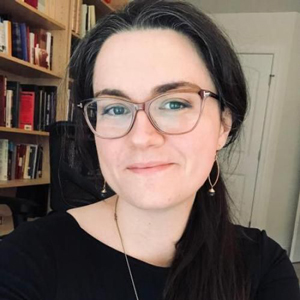
Roseen Giles, Mrs. Alexander F. Hehmeyer Associate Professor
Giles is an assistant professor of music with a specialty in early modern musical culture and serves as the curator of Duke University Musical Instrument Collections. In her research she examines the aesthetic, professional and personal relationships between poets and musicians of the Italian 17th century. Giles is an exceptional scholar, educator and performer whose work exemplifies Duke’s commitment to innovative scholarship, distinguished teaching, and community engagement. Her courses blend intellectual rigor with dynamic and engaging pedagogy, earning high evaluations from students and peers alike.

James Nolen, Alexander Hehmeyer Professor
Nolen is a professor of mathematics whose research and scholarship focuses on probability, partial differential equations, asymptotic analysis and applied mathematics. Nolen is an outstanding educator and scholar who has made significant contributions to undergraduate teaching and mentoring at Duke. His exceptional teaching spans a variety of courses, including the development of several innovative undergraduate courses and interdisciplinary seminars exploring the intersection of science, technology and the humanities. Over the years, Nolen has developed a teaching style that connects undergraduate coursework with current questions in mathematics and science, often drawing from his own research on broader topics. Nolen’s achievements and recognitions include receiving the highly competitive NSF CAREER Award.
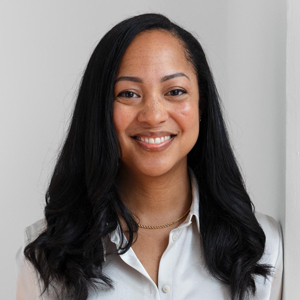
Tamika Nunley, William & Sue Gross Professor
Nunley is a research professor of history and a celebrated historian of African American women’s history and the history of slavery with a special focus on “the long 19th century.” Nunley consistently receives excellent reviews from students and faculty classroom observations. One of her most innovative courses is Women Behaving Badly, a first-year seminar exploring the history of women’s transgressions from the late 18th century to the early 20th century in the United States. Nunley sets a high bar for students and includes rigorous texts with the goal for students to think critically about gender and sexual politics and to explore the ethical implications.
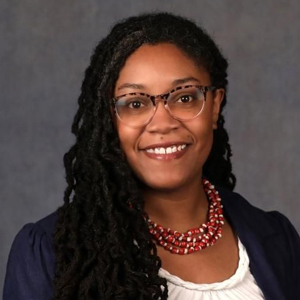
Phia Salter, Fred W. Shaffer Associate Professor
Salter is an associate professor of psychology and neuroscience. Salter’s research uses cultural-psychological and critical race perspectives to inform our understanding of collective memory, social identity and systemic racism. She is dedicated to social justice initiatives for teaching and learning with courses in cultural psychology, Black psychology, and history of psychology. In the classroom, she facilitates dialogue, critical thinking and action that empowers students to identify, challenge and dismantle various forms of oppression and injustice. Salter creates enriching and engaging classroom experiences for students in addition to contributing to the faculty community of practice around teaching excellence in her department.
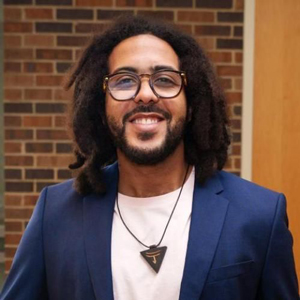
Gustavo Silva, Jack H. Neely Associate Professor Silva is an associate professor in the Department of Biology. Over the years, he has demonstrated excellence in scholarship, teaching and mentoring. His research studies the regulation of protein synthesis to investigate cellular response to stress. In the classroom, Silva excels in teaching both large courses and small seminars. For years, Silva co-taught his department’s largest undergraduate course, and consistently received praise from students. More recently, feedback from his new seminar course reflected his talent for building and sustaining classroom environments that are both welcoming and challenging. Silva is a talented mentor, receiving numerous awards for his efforts to support students and faculty of color at Duke.